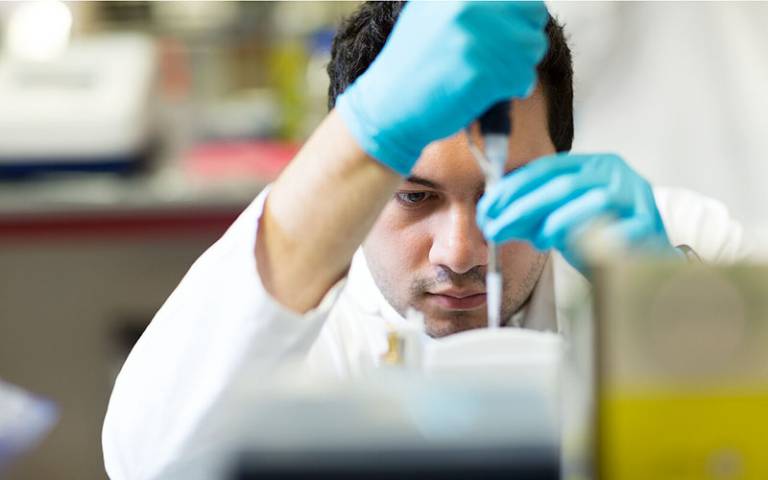Empowering ECRs with the Fellowship Incubator
The Fellowship Incubator has supported 39 separate pilot research projects across UCL, allowing ECRs to gain vital experience and independence, in support of their career development.

6 December 2023
The Fellowship Incubator project was instigated by early career researchers (ECRs) at UCL and implemented by Elizabeth Halton, Director, UCL Doctoral School, and Dr Chris Hardy, Senior Research Fellow, UCL Faculty of Brain Sciences who was also working part-time at the Doctoral School.
The project, which provides seed funding opportunities for postdoctoral researchers, was designed in response to the Research Culture Roadmap’s goal of supporting ECRs towards independence (under the ‘Transparent and fair career development theme’).
It also aligns with the recommendation of the Concordat to Support the Career Development of Researchers that postdocs and researchers be given independent time to develop in whatever way they saw fit.
Small outlays, big rewards
Elizabeth and Chris saw the seed funding as the ideal opportunity for ECRs to try out something new in UCL’s research environment.
“We want postdocs to feel they were given an opportunity to have a small, independent project and support for that project – just to try out an idea and see if it works,” says Elizabeth.
Chris concurs: “A small outlay can lead to some really big rewards, and giving ECRs the chance of getting some pilot data could lead to them being promoted or eventually getting external funding.”
Empowering ECRs to direct and lead
The Fellowship Incubator proved understandably popular with ECR communities across UCL. Chris and Elizabeth received more than 80 applications in the first round of grants. For the second round, there were more than 300 applications.
The opportunities the seed funding affords provide a wealth of experiences that are essential for ECRs looking to prove their suitability for promotion.
Chris says, “As well as demonstrating autonomy, building your CV, developing your collaborations and networks, the Incubator provided some postdocs with experience in project and team management. That supervisory experience is really important – it's very difficult to get that as a postdoc.”
The seed funding also allowed researchers to work more independently from their Principal Investigators.
At the time of writing, two participants, Keri Wong and Daniel Brayson, have already gone on to secure permanent academic posts. More successful career progressions are expected over the longer term for participating researchers who’ve consolidated their positions and credentials, using this seed funding.
Supporting career progression
The short-term impact of the project has been considerable, as the responses of the participating researchers attest.
Dr Laura Molina-Garcia, funded to study interactions between bacteria and neurodegeneration, reported: “As a senior postdoc, it’s always difficult to find the time and resources to explore my own independent ideas. The granting of a Fellowship Incubator award has allowed me to finally start testing my own research questions. This scheme has provided me with the means to generate pilot data for larger funding applications. I found the scheme very useful to develop novel skills required to transition from postdoc to PI.”
Dr Zoe Gallant, funded to study physical and mental co-ordination, added: “We expect to be able to generate several papers from this pilot data. My last paper was published in 2017, so it is of huge benefit to my career to be able to publish again. It should also establish my own research career pathway and allow me to apply for funding for a variety of projects that come from this.”
This kind of opportunity is very important for researchers experiencing the precarity and uncertainty of the early stages of an academic career. Looking ahead, the scheme will prioritise the needs of researchers working in social sciences, humanities and arts disciplines.
Showing appreciation for ECRs
With a project that so obviously benefits ECRs across UCL, Elizabeth is hopeful that they can continue to build on their initial success.
“It’s so important to make ECRs feel appreciated, supported and seen. So many brilliant people want to come here, but we have to encourage people who are already here to do well and thrive.
“We could still do more. Ideally, every postdoc that comes to UCL would get this opportunity.”
"It’s so important to make ECRs feel appreciated, supported and seen."
- Elizabeth Halton, Director, UCL Doctoral School“
More information
About research culture
UCL’s Research Culture programme is developing a fair, collaborative and inclusive research culture, where both our research and research community can thrive. We work with UCL’s research community to support and deliver change against our 10-year Research Culture Roadmap.
 Close
Close

